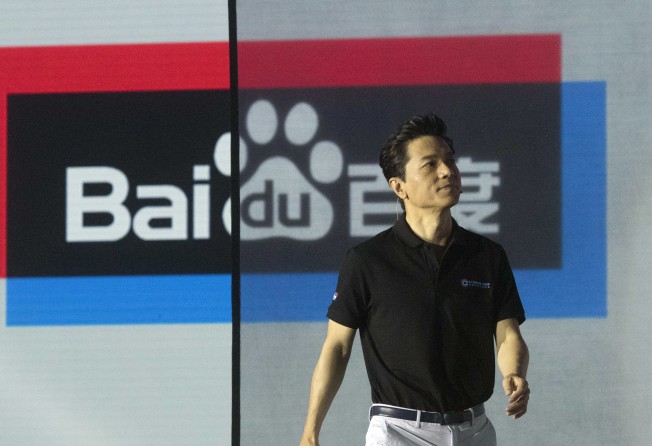
Tencent, Alibaba and Baidu will reward patient investors who stay with them through the headwinds
Oliver Cox says China’s tech sector has taken a beating of late and some of its giants are in a transition process, but a look at the quality of the work these companies do should encourage investors to stick around

We know from the writings of Warren Buffett, backed up by multiple academic sources, that wealth is generated from waiting. Buy companies that you believe in and stick with them through thick and thin, back the best management teams and resist the temptation to react to short-term news flows.
Put another way, simply try to do nothing to see consistent compound interest gains on a gradually growing equity base accrue over a long period.
The problem facing investors, bombarded by a huge amount of information every day, is that “doing nothing” is actually quite hard.
The Chinese technology sector, comprised of both internet and gaming companies as well as hardware and component manufacturers, serves as a classic example of a sector whose shiny long-term prospects are in conflict with some admittedly challenging short-term headwinds.
Investors could be understandably tempted to abandon the sector, but a thoughtful long-term holding strategy of simply sitting still may be more prudent.

Although they have suffered a tide of negative short-term sentiment and resulting price weakness, fundamentally, nothing has significantly changed in the past six months for Tencent, Alibaba and Baidu.
Tweaks to government regulation of the gaming sector affecting Tencent, for example, or the management transition currently underway at the top of Alibaba, are unlikely to have any long-term impact on either company.
Juxtapose this news flow against the forward strides Baidu is making in artificial intelligence and voice-activated search to rival Google. Or the scope for Tencent to dramatically improve the experience of, and thus boost revenue from, mobile phone and PC gamers over the next five to 10 years as virtual reality and e-sports become mainstream.
For Alibaba (owner of the South China Morning Post), how many shareholders appreciate the fact that within the company they possess not only what is considered by many to be the best fintech company in the world – Ant Financial – but also the dominant domestic leader in cloud IT services – Alibaba Cloud?
Jack Ma on artificial intelligence
Although the China tech stock market rout has taken some shine off these stocks, the long-term future for these Chinese internet leaders remains exceptionally bright, with multi-year opportunities for growing and monetising user bases in gaming, e-commerce, search engines, financial services and more.
While other companies make grand claims about future gains to come from major artificial intelligence investments made today, we can already see how the application of AI and other technological improvements are working in these companies’ favour, dramatically enhancing user experiences and profitability. As incumbent leaders, they have spent years fighting off competitive threats and continue to do so. Another factor in their favour is that they are materially less sensitive than almost any other sector of the Chinese economy to the threat of rising US tariff barriers.
Elsewhere, specifically for the hardware and component makers, the fundamental outlook is somewhat cloudier. The Made in China 2025 aggressive investment plans for gaining leadership in memory hardware and other semiconductor areas will undoubtedly allow a new wave of Chinese tech manufacturing leaders to emerge.
But exactly which companies that will be remains unclear. Who will emerge as a competitor to Samsung and Hynix in memory? Or Intel and TSMC in leading-edge semiconductors? Or Texas Instruments in analogue?
US trade war has little impact on Chinese growth, says Asian Development Bank
The impact of domestic and international competition as well as the short-term costs that tariffs impose make it difficult at this time to build conviction. Hence, outside a few relatively niche growth areas in tech hardware, it makes sense for investors to monitor this area from a distance.
The battered but not beaten China technology sector looks like a classic example of an opportunity for investors with a five- to 10-year view to selectively increase exposure to leading companies at near-bargain-basement prices.
Investors will most likely look back on news flows in 2018, be it in relation to tweaks in government gaming regulation or well-laid plans for managerial transitions, as being of little or no material value when stacked up against the consistent earnings power and profitability of these companies’ exceptional franchises.
Oliver Cox is portfolio manager at JP Morgan Pacific Technology Fund